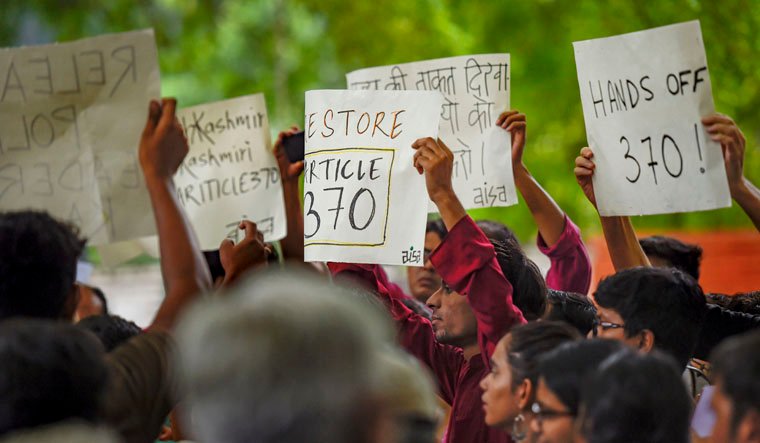Today, the Supreme Court scheduled elections for the next year and supported the Center’s decision to remove Jammu and Kashmir’s special status under Article 370 of the Constitution. Chief Justice of India DY Chandrachud gave out a majority ruling from the Supreme Court. Stating that Article 370 was a temporary measure to facilitate Jammu and Kashmir’s unification with India. The Supreme Court ordered state elections for September 30, 2024. And declared that Jammu and Kashmir should be treated on the same footing as other states “as soon as possible.”
Three distinct rulings were rendered by the bench, one of which was written by Chief Justice Chandrachud on his own behalf, Justice BR Gavai, and Justice Surya Kant. Five justices have unanimously supported the presidential decision to repeal Article 370. With Justice Sanjay Kishan Kaul issuing a second concurring judgment and Justice Sanjiv Khanna issuing a third.
The Supreme Court explained its ruling by stating that Jammu and Kashmir lost its sovereignty when it joined India and that its constituent parliament was dissolved at the time of the merger. “It was not the intention for the J&K Constituent Assembly to exist indefinitely. All it was intended to do was draft the Constitution. Chief Justice Chandrachud stated that the President was not required to follow the Constituent Assembly’s recommendation.
Supreme Court Scraps Article 370

On the other hand, the Supreme Court clarified why the state maintained its unique character even after merging with India, even if it lacked “internal sovereignty”. “The unique circumstance that led to the introduction of Article 370 vanished together with the constituent assembly. However, the state’s circumstances persisted, and as a result, the Article was upheld by the Supreme Court.
“Legal and executive authority are available to every state in the union, but to varying extents. Some instances of specific agreements for various states are included in Articles 371A through 371J. An illustration of asymmetric federalism is this. The Supreme Court declared that Jammu and Kashmir shares no unique internal sovereignty with other states.
“Legal and executive authority are available to every state in the union, but to varying extents. Some instances of specific agreements for various states are included in Articles 371A through 371J. An illustration of asymmetric federalism is this. The Supreme Court declared that Jammu and Kashmir shares no unique internal sovereignty with other states.
Jammu and Kashmir were granted its own constitution and the authority to make decisions on all issues except foreign policy, communications, and defense under Article 370. The state’s unique status terminated when it was removed. Article 35A, which was contained in Article 370, provided the former state the authority to determine who it recognized as permanent residents and granted them particular privileges, such as the ability to work for the government and own property.













I’ve been browsing online more than three hours today, yet I never
found any interesting article like yours. It is pretty worth enough for me.
Personally, if all website owners and bloggers made good content as you did,
the net will be much more useful than ever before.